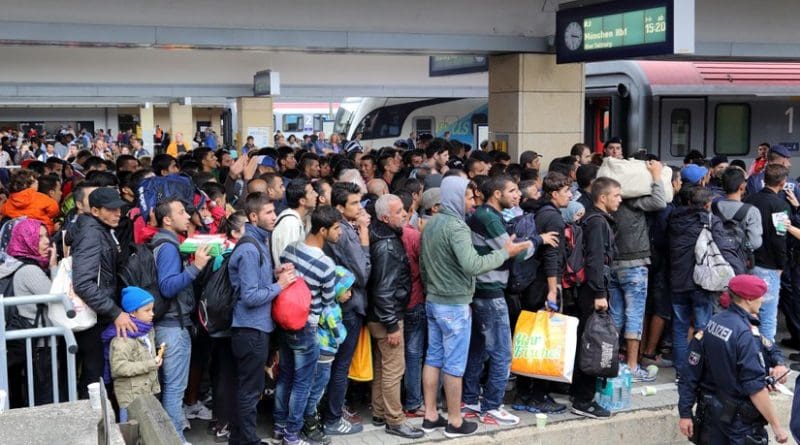Is Refugee Issue Hanging Like Damocles Sword Over Europe? – OpEd
The recent incident of some local residents in Germany protesting against the refugees whom they accused of misbehavior, provide disturbing signals with regard to the shape of things to come in Europe.
While thousands of refugees have arrived in Europe from Syria and other countries, European countries seem to have no clear policy or consensus with regard to tackling the issues arising due to the massive influx of refugees. It is reported that around 4 million refugees have left Syria and arrived in other countries with a significant number of them moving to Europe. In all probability, people from other countries in Africa and Asia may also have used this “opportunity” to pose as refugees and enter Europe.
With Germany initially showing a welcome attitude to the refugees, which is thought as a misconceived policy and approach by several other European countries, refugees have certainly felt encouraged. The European difference of opinion in managing the refugee influx is already evident by the fact that a few countries have closed their borders and subjected the entrance of people to severe scrutiny. Certainly, this is a setback for the European unity move and the aspirations of several European countries to shed historical animosity between themselves by removing the cross-border restrictions between them.
It is reported that a large percentage of citizens in United Kingdom are of the view that it would be appropriate for United Kingdom to move out of the European Union.
The disturbing aspect is that the refugees are being allowed to the European countries, without the European countries being in a position to check whether they are really refugees, their background or their motivations. Once these refugees enter Europe, in all probability, they may not go back and have to be integrated into the mainstream of the host countries. This could pose many social problems in the short- and long-term, as the lifestyle, skill level and employability of the refugees could be far different from the prevailing level in the technologically and economically advanced European countries. Additionally, religious conflicts may occur with disastrous consequences and long-term destabilizing effects.
It is surprising that though several European governments are aware of such uncertainties, and are concerned, they cannot find a long-lasting solution by putting their heads together and prevent a possible very disturbing situation in the coming years.
It is the law in European Union that when a refugee steps into a particular country, he has to be taken care of and settled by the same country. This has become difficult, as the refugees come in large numbers and insist that they will only go to a particular country of their choice, which they consider as economically strong. For example, several refugees who enter Greece have opted to go to Germany.
The piquant problem faced by Europe is that when thousands of refugees come unarmed and determined to cross the border, it is extremely difficult to physically stop them. The influx of refugees is not like a war situation, where enemies enter the territory forcibly. These are unarmed and suffering people and therefore, any civilized country has to view them with an humanitarian attitude. This is the dilemma that is now facing Europe.
Obviously, the only solution for this problem is that Europe has to establish stability in the destabilized regions from where the refugees are arriving, so that people may find it satisfying to stay in their own countries. How to do this?
Do the European countries have the necessary will and ability to enforce peace and stability in the disturbed regions?
Perhaps, the European countries can appeal to the United Nations to interfere, by organizing an international peace keeping force to enforce peace in the disturbed regions, with European countries financially and technically supporting such efforts.
The ultimate threat is that the demography of Europe may change sooner or later, perhaps sooner than later. The change of demography will lead to change in the religious composition, a change in the value systems that Europe has adopted so far and may even lead to a disturbance of peace.
This will lead to future developments with far-reaching implications that should make the citizens of Europe lose their sleep now. The recent protests in Germany by locals should be seen as indicating the concern of the people about the grave warning for the future
Europe, however, seems to be losing time now and appears to be heading for a difficult scenario, with a lack of clear ideas about strategies to tackle the impending crisis.

